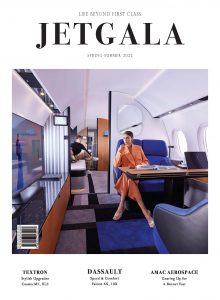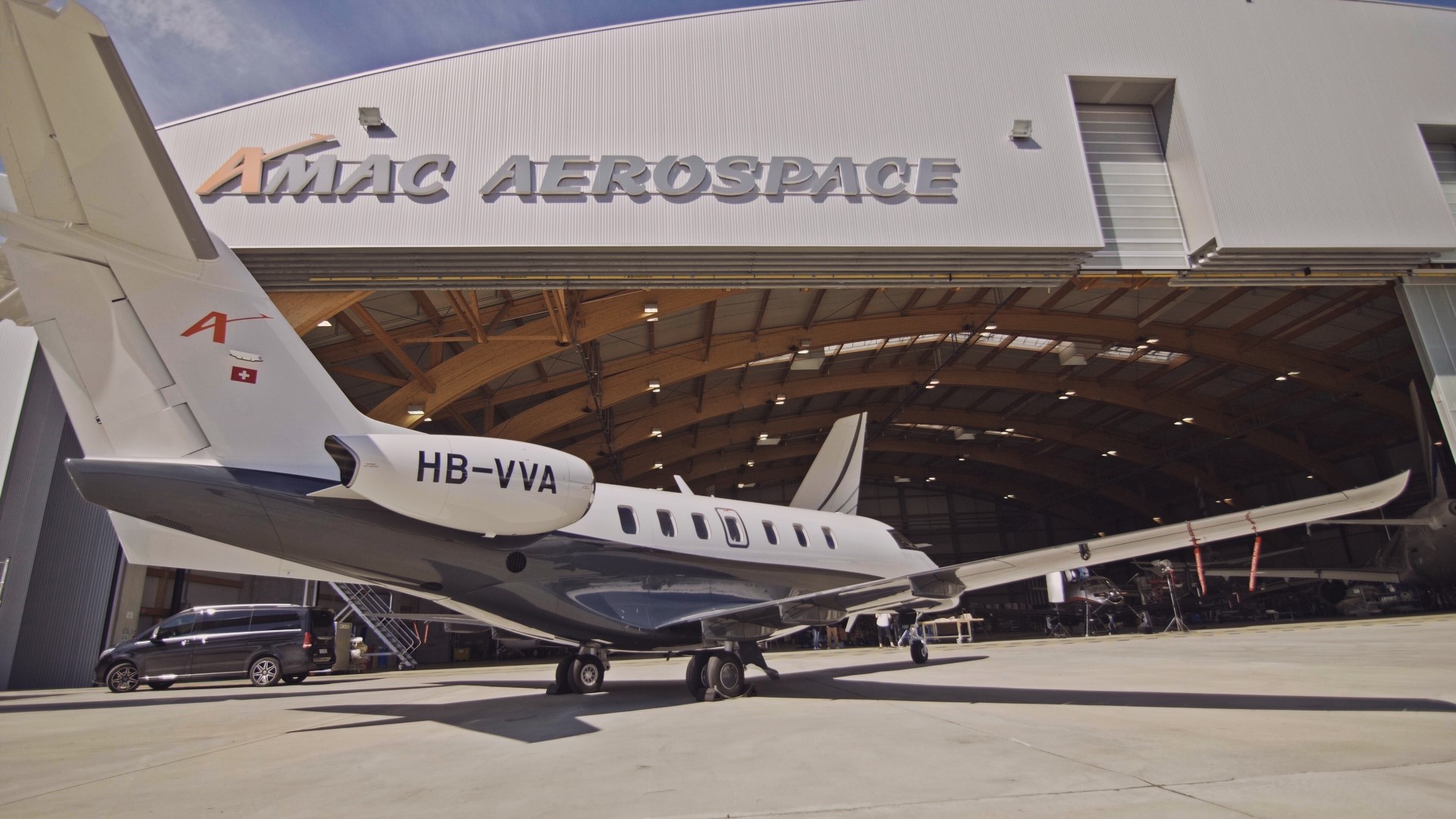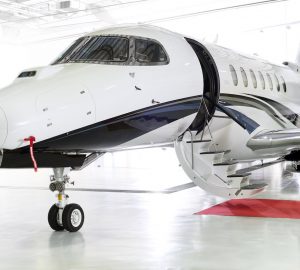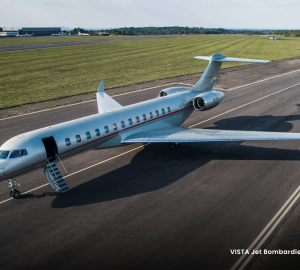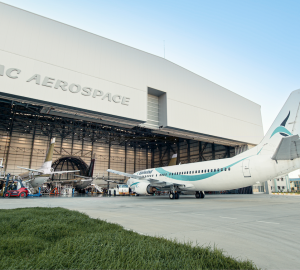Smooth Ride Ahead
With a committed workforce and a stable lineup of projects AMAC Aerospace Group remains optimistic for the near future
by Marc Almagro
In July this year, AMAC Aerospace aired their first virtual press briefing at their headquarters in Basel, Switzerland. In previous years, they were held at EBACE (European Business Aviation Convention & Exhibition) in Geneva; however, the event, which was set to take place at the end of May, was cancelled due to restrictions associated with the Covid-19 pandemic.
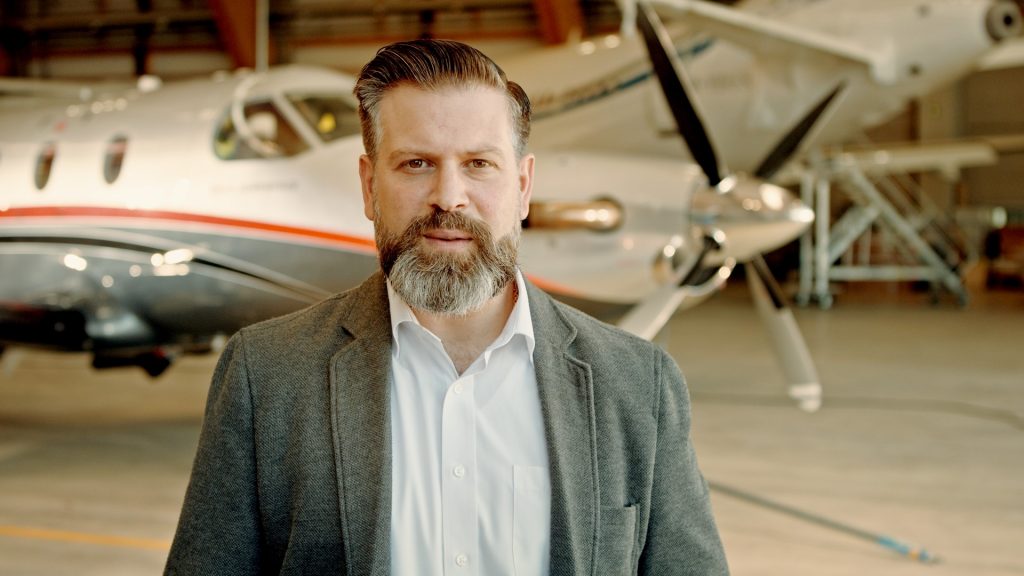
Mr. Waleed Muhiddin, Director of Business Development and Marketing for AMAC Aerospace, hosted the virtual event at Hangar No. 3, which remained a hub of activities despite the general slowdown elsewhere. “I’m standing here in the midst of where we’re working on our projects,” he said as the camera panned to the aircrafts, including a BBJ 747-8i and a Pilatus 24 PC 24. “As some of you know, we’re the official Pilatus sales representative in the Middle East,” he added.
Mr. Kadri Muhiddin, Group Executive Chairman and CEO, affirmed that indeed the Covid-19 pandemic has affected the aviation industry globally. “We’re talking about aircraft manufacturers, maintenance facilities, and suppliers,” he elaborated. “There is a business downturn in the aviation industry.” However, he pointed out that the story so far has been different for AMAC. “We have not suffered the downturn. Our business recorded an increase in the volume of work in the last three months.” He credited the company infrastructure, and the strong bond between the management, the employees, and the market as factors behind the sustained productivity. “I consider ourselves as not only lucky, but dedicated to the job we do. And credit goes to the workforce.”
Mr. Waleed Muhiddin pointed out that although the pandemic could affect any company, AMAC has been “up and running, and stable, without having to furlough any staff”.
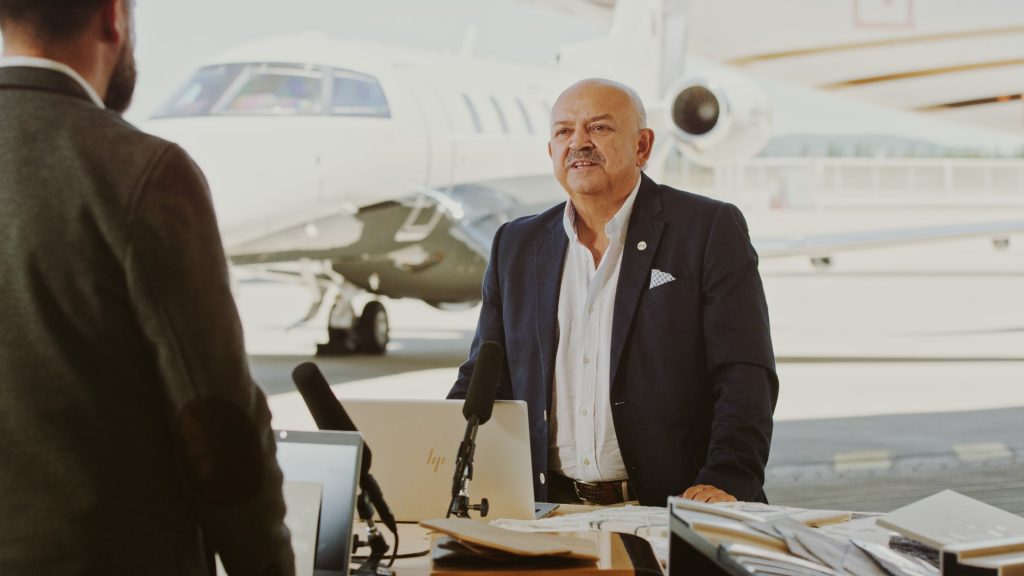
Mr. Kadri Muhiddin explained that the company’s Safety Team has enforced a very good safety guidelines for the staff to counter the Covid-19. “We are lucky that we only had a handful of cases, none of which (is) serious or life-threatening. (The staff) worked hand-in-hand (with the management), and the business continued.”
Mr. Kadri Muhiddin added that it saddens him to see their competitors suffering from the pandemic, which has brought negative effect on their businesses, and has resulted in layoffs. “It is sad to see…. We don’t wish it on any of our competitors. It’s always good to have an active, strong market where customer can choose from a variety of options,” he concluded.
No Signs of Slowdown
When asked about the highlights of the last 12 month, Mr. Bernd Schramm, Group COO, highlighted a number of project completions, including the re-delivery of the A320, VVIP completion, and the first NEO (new engine option).
AMAC has completed the installation of the special systems such as those for self-defense. In maintenance, AMAC has also done a number of e-track on wide body aircrafts and business jets, including Gulfstream and Bombardier.
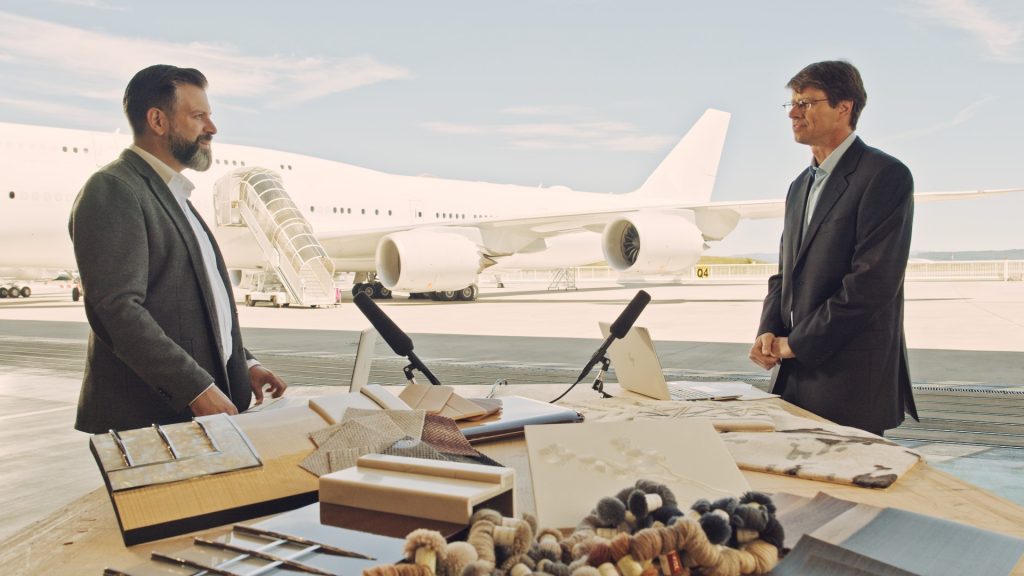
“With respect to marketing and trade shows, we participated for the first time in the MEBAA Show Morocco last year, as well as in MRO Middle East in Dubai,” Mr. Schramm said. AMAC has also lined up aircrafts to be returned to their owners. “We have a big bird in our hangars, a 747–8, which is basically completed,” he shared. “We are in the final commissioning and certification phase of that project, and we expect it to be delivered by end of July.”
Maintenance is among the pillars of the company, Mr. Schramm reiterated, not only in Basel, but also in Turkey. “We all know we’re living in (a state) of (a pandemic) crisis, but for maintenance of VVIP aircraft, we didn’t see a decrease in demand. We were very busy since the beginning of the year, and we’ll be busy further in the next few months.”
AMAC Turkey is focused more on airline maintenance, he elaborated. They have already secured businesses for winter and spring (2021), and are keeping watch over the impact of the current situation on the airline maintenance business, but he remains confident the operation in Turkey will remain busy.
Mr. Schramm concurred that they have to ensure the supply chain network runs without interruption. “Having full hangars, completion projects in progress, and the full workforce in action require that the supply chain is managed very well. Our purchasing and logistics departments are doing a great job. We didn’t experience any delays in equipment and material deliveries. Close contact with our suppliers, along with forward planning, allow us to have a stable control of the supply chain.”
Another highlight is for AMAC is the facilities expansion at EuroAirport Basel-Mulhouse-Freiburg Hangar No. 5. An important component of the company’s maintenance work is business jets. AMAC is maintaining Gulfstream and Bombardier fleet, and has been awarded the Bombardier Authorised Service Facility. The increasing demand from business jets maintenance work justifies the building of Hangar No. 5, currently in progress and planned for opening in autumn this year. This hangar, Mr. Schramm said, will cover the additional demand on business jet maintenance.
Protecting the Main Assets
Mr. Mauro Grossi, Group CFO, confirmed that the Group is in healthy financial condition. “I am confident that it will remain so in the near future. Our business model is based on long-term businesses such as completion and refurbishment, which allow us better planning in terms of workforce and finances. The other is short-term oriented – aircraft maintenance – which does not show a decrease in demand at the moment.”

He mentioned that the most important activity for the company in the past months have been the preservation of the main assets, namely, a motivated workforce. “We have to preserve their health during this period, and we (put in place) a lot of measures.” He shared that the company remained in contact with the authorities in France, Switzerland, Germany and Turkey, and have implemented all necessary measures, even going steps further in certain cases. “This was certainly, besides the finances, the main (focus) in these past months: to preserve the health of our people.”
After the first announcement from the government, AMAC increased the Work-from-Home capabilities for certain members of the staff. Those who had to report in the facility did so in two shifts a day in order to avoid overcrowding at the workplace. They also implemented temperature screening at every entrance, and people with fever were sent immediately home. Those in the risk group were not allowed to come to the office or the hangar.
Mr. Grossi said that the near- to mid-term outlook for the Group will depend from country to country, as well as the actions taken by the governments. He cited that in Basel, work is back to normal at the hangar, while working from home office has slowed down. “We will keep the safety regulations, including temperature screening, and allowing some staff to work from home, in the meantime. “For Turkey, which is opening soon, the staff will return to normal working condition; the same is true for France. This will depend on what the different government authorities decide.”
Mr. Grossi reemphasized that the financial and business forecast for the next two years looks good. “AMAC is positive, and we have a good workload.”
